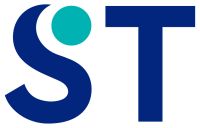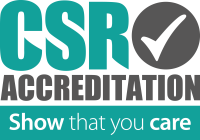- By Saffery - accountant and advisory firm, Buckinghamshire Business First Partner
- 29 November, 2023
Share by email
Article by Sheryl Davis, Partner, Saffery (High Wycombe office) - accountant and advisory firm, Buckinghamshire Business First Partner.
A new business owner might not interact with either a professional adviser (accountant or tax adviser) or with HM Revenue & Customs (HMRC) for some time.
However, decisions taken during this period can have unexpected consequences down the line, once the business is registered for tax and starts to submit returns.
This article advises on where potential issues might arise.
Business structure
How you decide to structure your business will determine your responsibilities for such matters as:
- The paperwork you must fill in to get started;
- The taxes you’ll have to pay in the future;
- How you can personally enjoy the profits of the business; and
- Your legal liabilities if the business makes a loss or fails.
There are three main options for those setting up a business in the UK.
Which is right for you will depend on issues such as whether you regard limited liability as essential, whether you are joining with others in the business venture, and whether you need funding (in which case a lender may require a corporate structure).
Taking the time to work through what is right for you – and to understand your ongoing tax (and other) filing requirements – will help you get your business off on the right foot.
1. Sole trader
You are a sole trader if you decide to run your own business as a self-employed individual (even if you, now or in the future, decide to employ staff).
This is the simplest form of business, since it can be established without legal formality. However, the business of a sole trader is not distinguished from the proprietor’s personal affairs, so you will remain personally responsible for any losses the business may suffer, expenses incurred in carrying on the trade, the maintenance of books and records, completing a self-assessment tax return and settling any taxes due.
A sole trader can, however, keep all the profits generated after paying tax on them.
2. Partnership
In a partnership, you and your partner(s) personally share responsibility for the business. Business profits are shared between the partners, with each partner being individually responsible for paying tax on their share of the profits. The partnership will need to submit a tax return, showing the allocation of income and expenses between the partners, and each partner will then need to submit their own self-assessment return.
A partnership is similar in nature to a sole trade, but because others are involved it is recommended that you draw up a written agreement setting out the partners’ mutual rights and obligations.
The business and personal affairs of the partners of a general partnership are not legally separate, so each partner will remain personally responsible for any losses the business makes, on a ‘joint and several’ basis. For this reason, most partnerships are now constituted as Limited Liability Partnerships (LLPs). Legally, an LLP is a company and must file annual accounts at Companies House (see below). However, for tax purposes it is treated like a general partnership, providing the LLP ‘members’ with the best of both worlds – the flexibility of a partnership structure combined with the legal protections afforded to company owners.
3. Company
A limited company comes into existence when it is incorporated or registered at Companies House.
The company will be responsible in its own right for everything it does and its finances are separate from the personal affairs of its owners (referred to as shareholders). A shareholder’s responsibility for a company’s liabilities is limited to the amount of any capital not yet paid up on shares that they own, which is usually nil or only a small amount.
Whilst the company’s business affairs are separate from the personal affairs of the owners, there are legal regulations for companies and their directors to comply with, including the annual filing of statutory accounts and an annual return at Companies House.
Companies pay corporation tax on taxable profits arising in the business. Shareholders are then subject to income tax on profits extracted from the company, or on certain benefits in kind provided to them.
Books and records
Even if you do not need to file annual accounts with Companies House, it is essential to keep accurate financial records. This will ensure that the financial information you need to manage your business effectively is available when you need it, and provides you with the records you need for your tax returns.
Good financial discipline around record keeping from the commencement of your business is often one of the most significant challenges for an aspiring entrepreneur. There are an increasing number of technological solutions aimed at making the record-keeping process simpler and these, together with the involvement of a professional accountant, can make a major difference to the success of the new business.
The government is increasingly looking to make tax ‘digital’. If your new business exceeds the VAT registration threshold, it will need to keep digital records and submit returns via software, and similar requirements are expected to be introduced for other taxes in the coming years. Putting a suitable system in place from the outset will make it easier for your business to navigate the changing reporting requirements.
Registering for VAT
If you expect your business turnover to be more than the VAT threshold (currently £85,000), or if you exceed this threshold in a 12-month period, you will need to register for VAT. Even if your turnover is below the threshold, it might be beneficial to register voluntarily, especially if your sales are zero-rated for VAT.
Employing staff
Taking on a first member of staff brings a whole host of new responsibilities and reporting requirements for a business, and this is a key area where a new business owner can run into problems down the road where they have not correctly identified all the relevant issues up front. Specialist advice can be invaluable.
From a tax perspective, the employer will need to set up a Pay As You Earn (PAYE) scheme with HMRC and account for the associated income tax and National Insurance contributions. Under Real Time Information reporting, information on payments to staff must then be sent to HMRC ‘on or before’ the point of payment. If you provide benefits to your employees, these also need to be reported to HMRC.
A business taking on an employee for the first time will also need to ensure that it complies with the National Minimum Wage rules and with its responsibilities to enrol relevant staff in a workplace pension scheme. In addition, you will need to be familiar with the basic tenets of employment law, which is another area where specialist professional advice is often needed.
In short, however tempting it might be for the new business owner to focus purely on building that business, and to ignore accounting and tax considerations, this can be a false economy. Taking time to understand the legal obligations of the business and to put the right systems in place, will pay dividends further down the line.
For further information on setting up a business, please email [email protected] in Saffery’s High Wycombe office or call 01494 464666.
Article by Sheryl Davis, Partner, Saffery (High Wycombe office) - accountant and advisory firm, Buckinghamshire Business First Partner.







